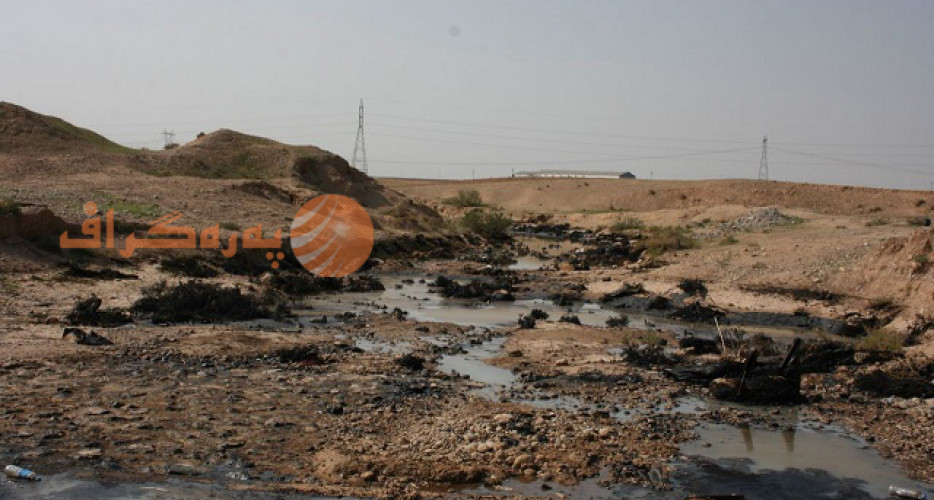
Peregraf- Sangar Salar
The owners of illegal refineries do not accept the Kurdistan Regional Government’s decision to close down the refineries. Hence, the KRG issued an order to form a security committee to execute its decision to indefinitely shut down unlicensed oil refineries.
Hundreds of illegal refineries threaten the health of people in the Kurdistan region due to the lack of predefined requirements set by the Ministry of Health regarding operational methods.
Sami Jalal, Chief of the General Staff at the Interior Ministry of KRG, told Peregraf that they would use force to shut down the illegal refineries since they are not willing to do so by themselves.
He also mentioned that joint Special Forces have been formed to carry out the task and will start to shut down the refineries soon.
"So far we have not closed any illegal refineries; those who have closed it by themselves should also remove any remains of the refineries," Sami Jalal said.
The refineries called illegal refineries, or small refineries, operate mainly in the Erbil and Sulaimaniyah provinces.
According to the previous investigations by Peregraf, those illegal refineries pollute the air and the environment as the waste they leave behind impacts people's health negatively in the nearby areas.
Under the supervision of the General Attorney, a high level committee has been formed to commit to the government’s decision to shut down the illegal refineries, consisting of the mayors of Erbil, Sulaimanyah, Duhok and Garmyan administration, including a representative of the Board of Environmental Protection and Improvement.
Earlier this year, a two-month deadline was granted to owners of all such processing plants to cease activity, however, despite the end of the deadline, the refineries are still active and the committee had not met for two months.
Abdulrazzaq Aziz, the representative of the Environmental Protection and Improvement in the committee, told Peregraf, "Our committee has given a two-month deadline for the refineries to clear their place, and those which are allowed to work, should abide by the instructions." Even if they fully comply, he said, there are still some environmental concerns.
Aziz also states that some of the illegal refineries are not ready shut down the refineries by themselves, "So they need to be shut down by force."
The former head of Energy and Industry Committee in parliament, Sherko Jawdat, who has been working for years on the refineries case, told Peregraf, "Such refineries have no official license, but have been built through influential people." However, KRG trades with them, as he said, the amount is three billion dollars of diesel per year.

The waste of illegal refineries threaten the environment and people's health
KRG reiterated its position that the illegal refineries "harm the environment and public health" in July 2018, adding they cause dangerous diseases among people.
Jawdat says 214 refineries exist in KRG, according to the Ministry of Natural Resources (MNR) data, while the legal purchase of crude oil from the government has been halted for them, they persist in buying it in the black market [back-alley deals].

The waste of illegal refineries threaten the environment and people's health
KRG's Ministry of Natural Resources classified the refineries into two categories in 2015: 164 are marked for closure for not meeting the conditions set by the ministry, and 28 of them are declared legal but still require compliance with the conditions set by the Ministry of Industry and Environment.
Three years after the decision, all the refineries are still operational.
Prior to that, the cabinet of the current President of Iraq, then-Prime Minister, Barham Salih, issued a series of decisions regarding the refineries in 2010, none of which have been implemented.